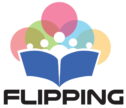The Benefits of Flipped Learning
As the world rapidly evolves, so too must our approach to education. The shift from traditional classroom settings to online learning during recent times has highlighted the rigidity of many educational systems. However, it has also demonstrated the potential for change and innovation. One teaching model that has proven to be both effective and adaptable is flipped learning.
In a flipped learning model, learners engage with course materials outside of the classroom, such as by watching online lectures, reading additional resources, participating in online discussions, or conducting research. Class time is then dedicated to applying and reinforcing the concepts learned, with the guidance of a mentor.
Superior Learning Outcomes
Research has shown that blended learning models, including flipped learning, are more effective than traditional face-to-face or solely online approaches. A 2015 meta-analysis found that students in flipped classrooms performed better academically than those in traditional classrooms. By having the opportunity to engage with course materials independently before class, learners arrive prepared and ready to actively participate in meaningful discussions and activities.
Moreover, flipped learning promotes critical thinking, problem-solving, collaboration, and communication skills. These are precisely the abilities that today’s job market demands. Instead of passively receiving information, learners are encouraged to analyze, evaluate, and apply their knowledge in real-world contexts. By actively engaging in the learning process, students develop the skills necessary for success in the 21st century.
Adapting to the Needs of the Future
Flipped learning offers a future-proof approach to education, aligning with the changing needs of society and the labor market. As technology continues to advance and automation becomes more prevalent in the workforce, the ability to think critically and problem-solve becomes increasingly valuable. Traditional teaching methods often fail to adequately prepare students for this reality.
By embracing flipped learning, educational institutions can equip learners with the skills and competencies they need to thrive in an ever-changing world. This approach fosters independent learning, digital literacy, and adaptability – all crucial traits for success in the modern workforce. Flipped learning not only prepares students for future challenges but also empowers them to take control of their own learning journeys.
